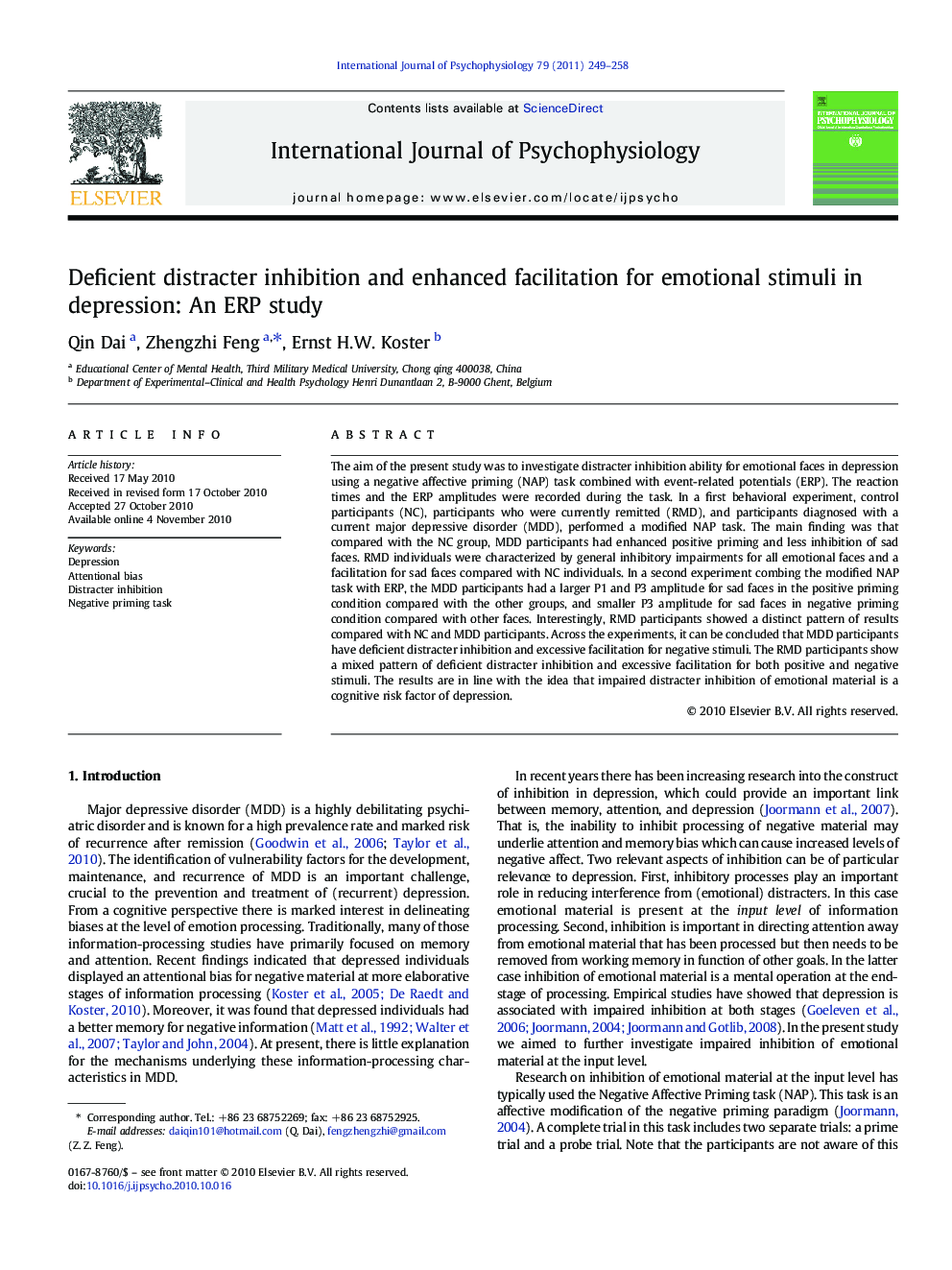| کد مقاله | کد نشریه | سال انتشار | مقاله انگلیسی | نسخه تمام متن |
|---|---|---|---|---|
| 930316 | 1474458 | 2011 | 10 صفحه PDF | دانلود رایگان |

The aim of the present study was to investigate distracter inhibition ability for emotional faces in depression using a negative affective priming (NAP) task combined with event-related potentials (ERP). The reaction times and the ERP amplitudes were recorded during the task. In a first behavioral experiment, control participants (NC), participants who were currently remitted (RMD), and participants diagnosed with a current major depressive disorder (MDD), performed a modified NAP task. The main finding was that compared with the NC group, MDD participants had enhanced positive priming and less inhibition of sad faces. RMD individuals were characterized by general inhibitory impairments for all emotional faces and a facilitation for sad faces compared with NC individuals. In a second experiment combing the modified NAP task with ERP, the MDD participants had a larger P1 and P3 amplitude for sad faces in the positive priming condition compared with the other groups, and smaller P3 amplitude for sad faces in negative priming condition compared with other faces. Interestingly, RMD participants showed a distinct pattern of results compared with NC and MDD participants. Across the experiments, it can be concluded that MDD participants have deficient distracter inhibition and excessive facilitation for negative stimuli. The RMD participants show a mixed pattern of deficient distracter inhibition and excessive facilitation for both positive and negative stimuli. The results are in line with the idea that impaired distracter inhibition of emotional material is a cognitive risk factor of depression.
Research highlights
► MDD participants had lower positive and negative priming effects for sad faces.
► RMD group had lower positive and negative priming effects for sad and happy faces.
► MDD group had larger P1 and P3 amplitude for sad faces in positive priming condition.
► MDD group had smaller P3 amplitude for sad faces in negative priming condition.
► RMD group had lower P3 amplitude for emotional faces in negative priming condition.
Journal: International Journal of Psychophysiology - Volume 79, Issue 2, February 2011, Pages 249–258